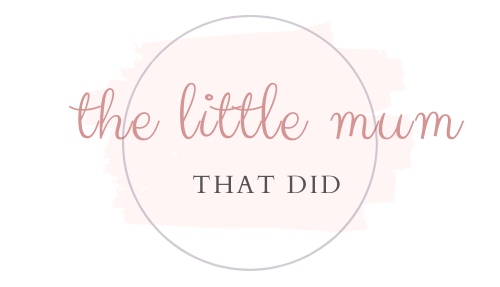Someone once told me that you should never show fear in front of your kids.
In some circumstances I guess I agree. Sometimes I watch my incredibly confident 3 year old climbing and chasing her older brother and sister around incredibly high climbing frames at the playground as I and all the other parents around us cringe inside hoping like hell that she doesn’t fall! She is pretty insane and has absolutely no fear when it comes to keeping up with her siblings! I guess I do all the worrying for her. But I try my best not to show it because I just love her resilience and her fun outgoing risk taking personality. I’d hate to take that away from her and replace them with limiting beliefs simply because of my own fear.
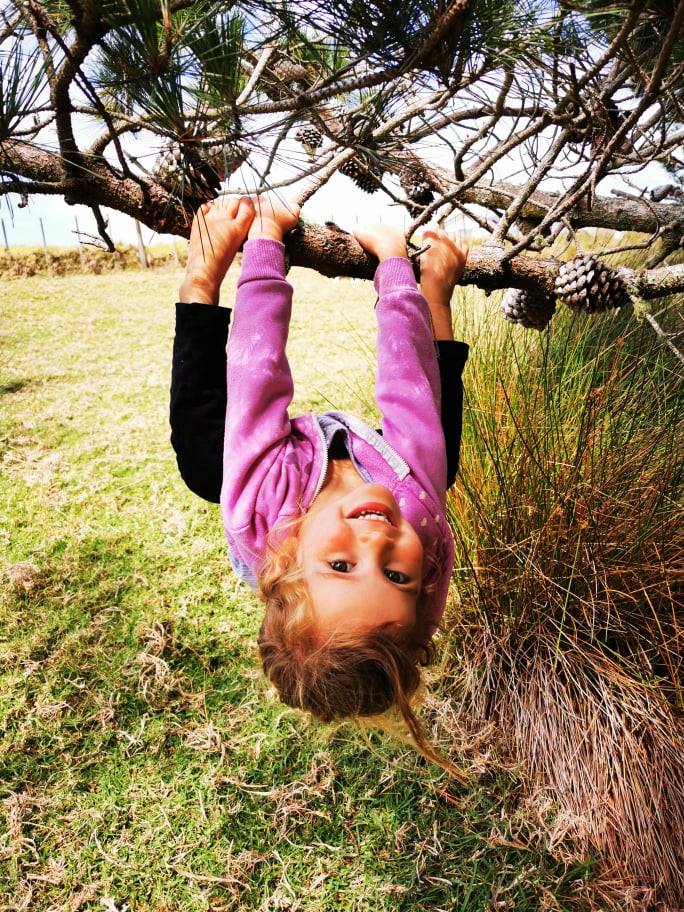
But is there a place and a time that you SHOULD show fear to your children?
During the last school holidays, we went on a trip to visit the inlaws who live close to an old mining village. They took us on a tramp up through one of the mountains where there were old gold mines and tunnels dug through the cliff faces.
Well, for one, I don’t like heights. And two, I don’t like dark scary caves. It was like a concoction of my own worst fears thrown together. Something happens when you become a parent and you realise how precious life is and how much you want to stick around to watch your kids grow up. So granted, I have become a lot more risk aware since popping out 3 of them.
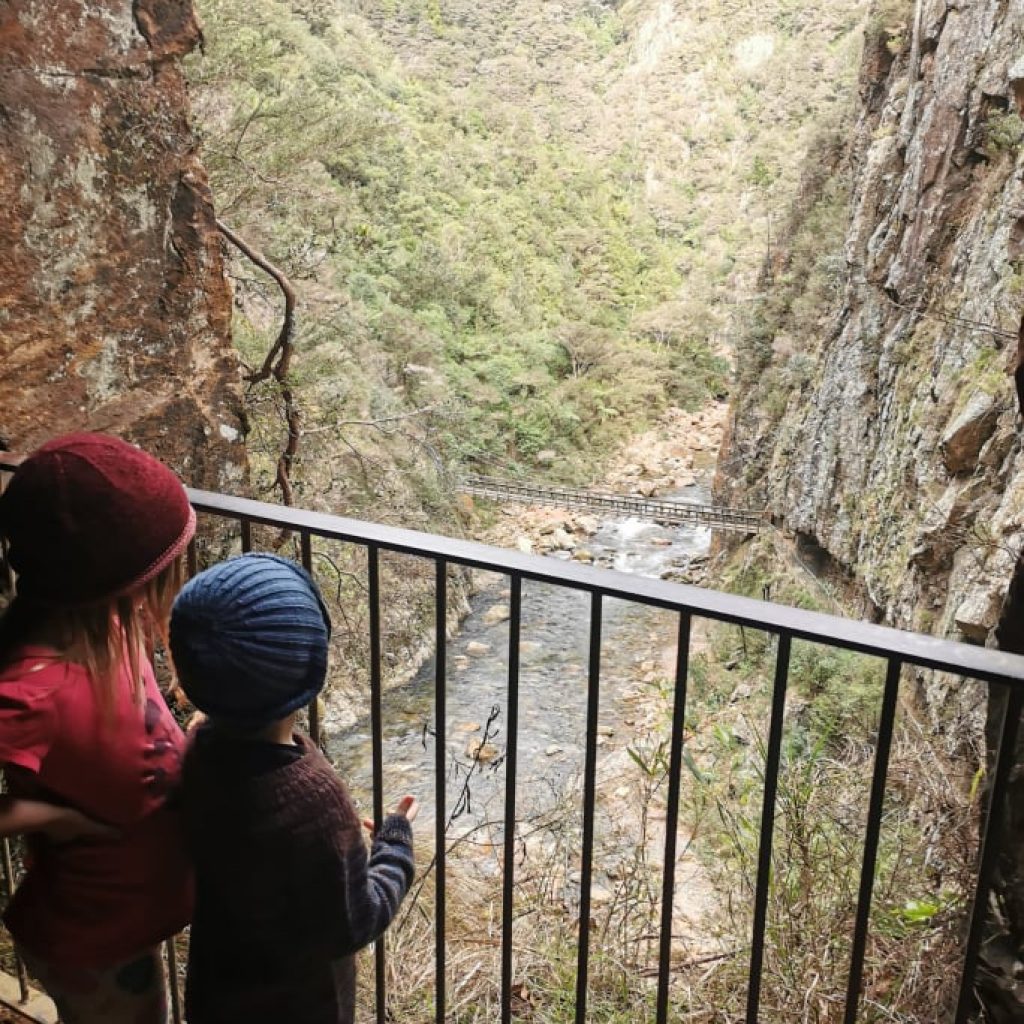
I managed to hold myself together fairly well for the most part of the tramp, however, when the crew, including the kids, decided to head down one of those dark, scary, very long tunnels as a detour my heart started to race and my anxiety got the better of me. So I stopped and kindly asked my father in law how far through he intended to take us as I explained in front of my children that I was starting to feel fairly uncomfortable being stuck in the middle of a mountain.
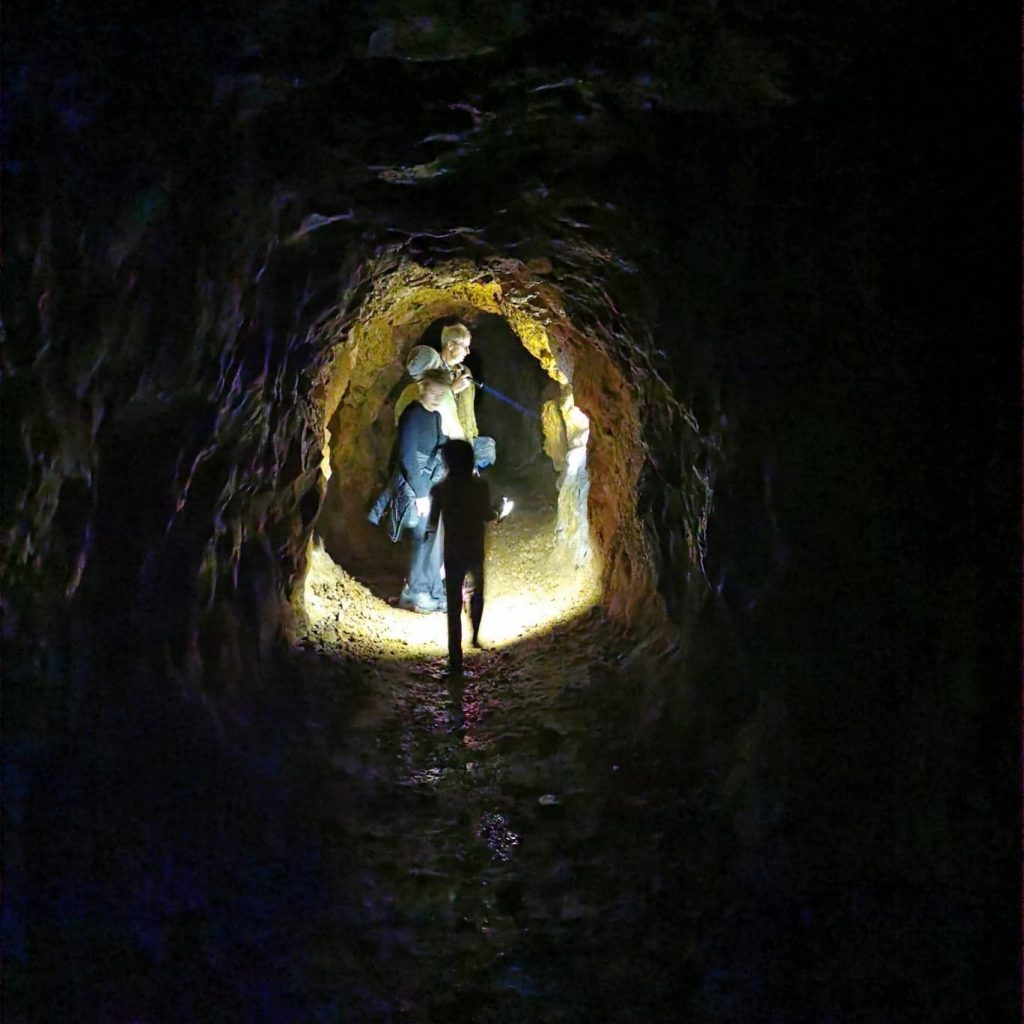
It’s so amazing how irrational your brain can be sometimes when put in a situation that can make you feel like this.
But what I did find incredible was how the fear instantly seemed to diminish the minute I told everyone what I was thinking. It’s like all the thoughts I was having completely lost all their power. To my surprise, I suddenly felt calm and reassured by my father in law’s confident and measured attitude. And found the courage to continue through the tunnels with everyone until we reached the dead end. (Which happened to be only another 10m around the corner anyway).
When we finally headed back out and could see daylight again, my oldest daughter turned to me and tried to poke fun at me for being a scaredy cat. Now my mother in law is a very kind and loving woman so she didn’t really think it was ok for my daughter to talk to me that way. And kindly tried to persuade her to give me a break by telling her that it wasn’t true and that I wasn’t really scared. That I wasn’t a scaredy cat.
And tried to disguise the fact that actually, mummy was pretty fucking terrified that we would never see the light of day ever again.
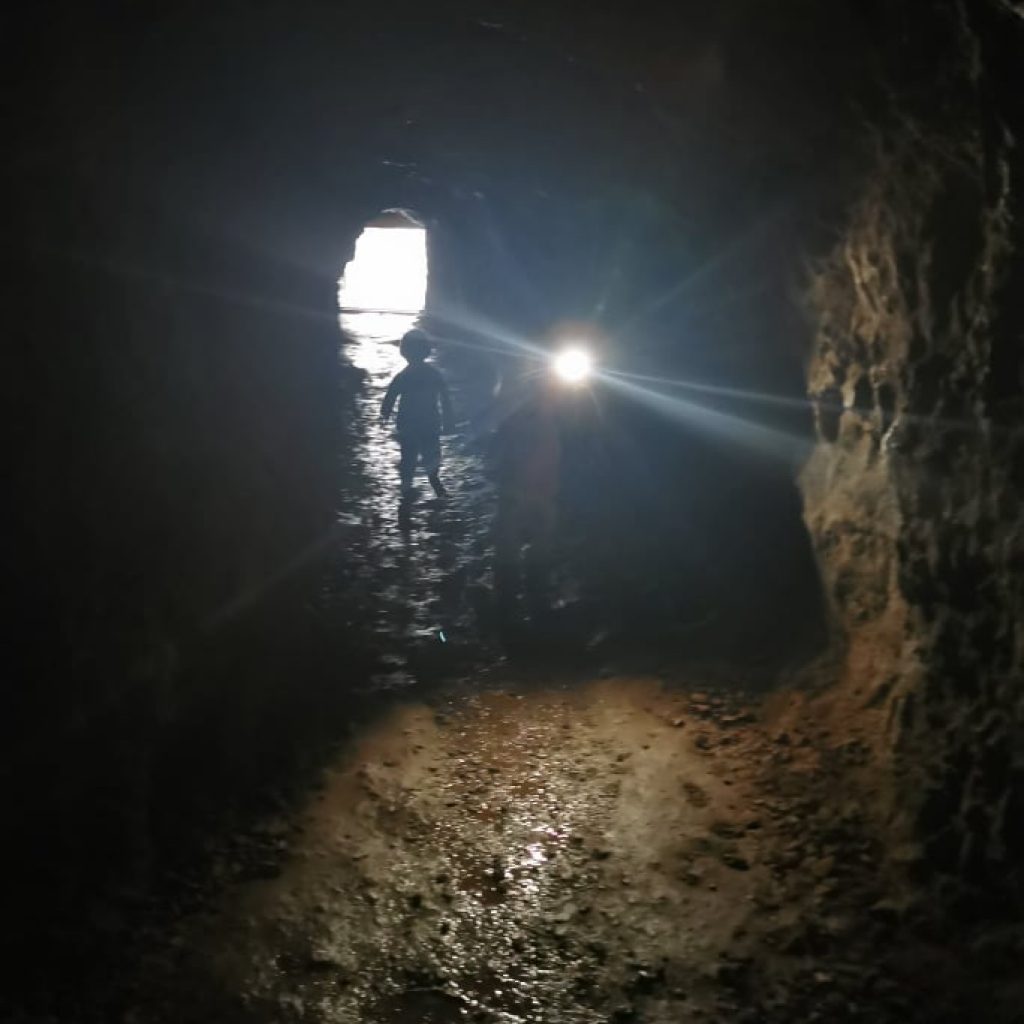
But the truth was, that I was. I was shit scared. I was envisioning earthquakes, volcanic eruptions, landslides and being trapped in collapsed gold mining tunnels where we were all going to be crushed or starve to death kind of scared. (Definitely didn’t go into this sort of detail with the kids however).
So I turned to my daughter and I explained, that yes, infact I was scared in there. That all Mummy’s, Daddy’s and everyone in the world get scared of certain things too sometimes.
And that it’s ok.
It’s ok to feel scared.
It’s ok to talk about feeling scared.
And being brave is all about being scared but doing those things that scare you anyway. Bravery simply doesn’t exist without fear or vulnerability.
Talking about fear is the best strategy to overcome it and I never want my kids to feel like they can’t speak up, be honest or be afraid to show their vulnerabilities.
They know that no matter what, if they come to us as parents they can tell us anything and we can work it out together. That there’s no shame in feeling fear or being scared, but what they do need to recognise is that fear only becomes a problem when it starts to limit you or anything that you want to do.
That sometimes overcoming a fear is actually the best feeling in the world.
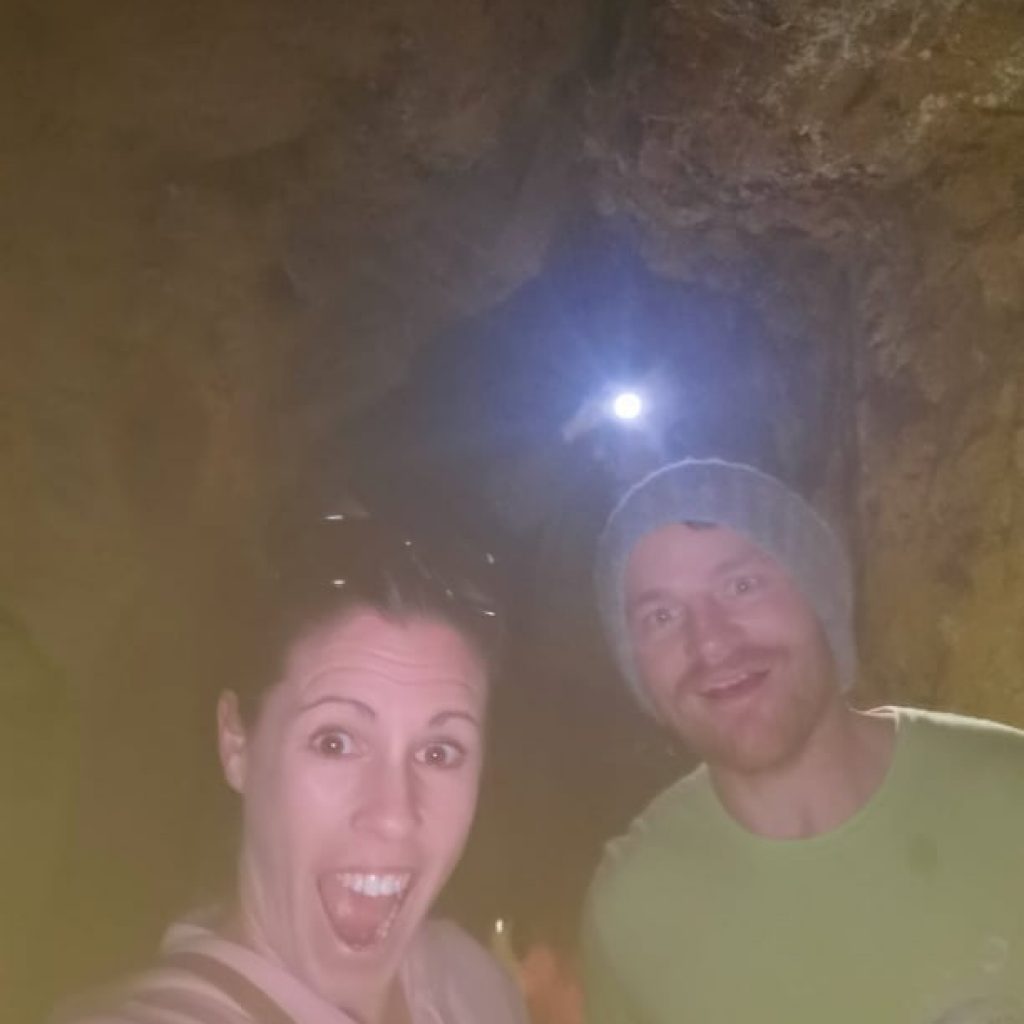
The kids had so much fun that day. They walked 10 km around the cliff face, through the tunnels and over the bridges. And so did I.
And we all survived.
So yes, it is super important to teach kids about fear and sometimes the best way to do this, is to model how to deal with it in front of them.
Here’s some tips for how to model fear in front of your kids!
Teach kids that it is ok to feel vulnerable or scared.
Teach your kids the true meaning of courage and bravery. There is so much power in understanding that each are literally nonexistent without the presence of fear and vulnerability. One cannot be without the other. A courageous act can only be seen as courageous if one feels vulnerable in some way, whether it be anxious, scared, worried, embarrassed or shamed. It is courageous because despite feeling that discomfort, they go and do it anyway. Vulnerability can present itself in many forms. But it is the act of pushing through and overcoming those obstacles that is what makes it courageous. Talk about this with your kids and encourage communication between you and them in times that they or you feel uncomfortable. And not only reassure but encourage the idea that it’s ok to feel discomfort in order to find your courage.
Don’t always pretend that you are not afraid of things that you are.
Cockroaches used to be the epitome of fear for me. I still find them absolutely disgusting but I’m not afraid of them like I used to be. In the past I’ve tried to hide my terror because I didn’t want my fear to wear off on my kids. But kids are smarter than you think. It’s like they have a radar for fibs when it comes to things like this. It’s so much better to tell them what you’re afraid of and that you are working on overcoming what it is that scares you. I still don’t really like cockroaches but I’m at the point where they don’t send me flailing out of the room anymore if I see one. And my oldest daughter is actually the one who bravely discards them for me if there’s ever one around. And that makes her feel pretty brave that she’s not scared of something that I am.
Make sure your fears are in check.
Don’t be an overly fearful parent. Anxious parents raise anxious kids. If you have overly irrational fears that limit you, then the chances are that they will rub off onto your kids. Make sure you sort these fears out, not just for you but for them too. Talking about your anxiety or fear is the best way to deal with it and get past the obstacles that hold you back. Make sure that you never avoid your own fears or let them limit your life.
Model self regulation when you feel fear yourself.
This means having the ability to process and manage our emotions in a healthy way. How can you keep calm and talk yourself down when you need to? I have suffered mild anxiety in the past and have learnt strategies to deal with it when it shows up again every now and then. This is what gave me the ability to stay calm in the tunnels instead of freak out, wave my arms in the air and scream we’re all going to die. For kids, self regulation takes a lot of time and practice so it’s good to see it modeled for them in some circumstances that you find yourself in.
Teach kids that fear is normal.
Kids need to know that fear is an important tool in life. And it is important not to fear it but learn to use it effectively. Fear is helpful in many situations in life and helps keep us alive in certain situations. It might stop us from driving too fast, standing too close to the edge of a cliff or picking up a deadly spider. But sometimes we have unhelpful irrational fears too and we just need to be able to filter unhelpful and irrational fears from the ones that we may need to pay attention to. So how do we teach them how to do this?
Teach kids to talk through their fears and be a good listener for them when they do.
Like I said, often talking about what you fear can take the power out of it. Make sure that you have an open, encouraging and non-judgemental attitude when it comes to times that your child might be feeling fear and encourage them to talk about it. Help your child talk through whatever it is that is frightening them. Ask them questions. Make sure you grasp the whole idea of what it is that they are afraid of so you can help talk them through it. Don’t try to talk them out of the fear they are having and do not try to belittle them out of feeling the way they are. Instead, validate their feelings and let them know that you are there to help them through it.
Encourage your child to face their fears.
We all know that the trick to overcoming fear is to face it head on. How did I overcome my fear of cockroaches? Cockroaches love school. As clean and tidy as I used to keep my classroom, there were always little cockroaches hiding behind artwork, in desks or climbing the walls. (No I’m not talking about the children in this circumstance). It was hard NOT to face this fear. But it worked. Teach your kids to do the same.
Don’t avoid circumstances, situations or people to sidestep your child from feeling scared either. Sometimes kids need to be put into unpredictable, challenging and unusual spaces in order for them to grow and become empowered, resilient human beings. Don’t let them shy away from facing their fears, instead encourage them and offer tools to give them confidence to take on risks and be vulnerable when they need to be.
And just remember fear is more scary for kids than it is for you. Kids operate out of an irrational brain anyway, so learning to deal with such an intense emotion takes some serious practice. Find purposeful teaching opportunities to encourage resilience in your child and always remember to be kind and empathetic when they do express their fears. Even if they seem little to you, they may seem really big for them.
Make sure your fears are not overriding your life with your kids but do remember that it’s ok to show them how you feel sometimes when you are scared. Don’t try to hide how you feel and instead model how you might cope with feeling such emotions, talk about them and problem solve to feel better.

And if you do this, they’ll never hold back on coming to you for help when they need it. Never feel scared to be scared. And find courage to face their fears when they encounter them.
